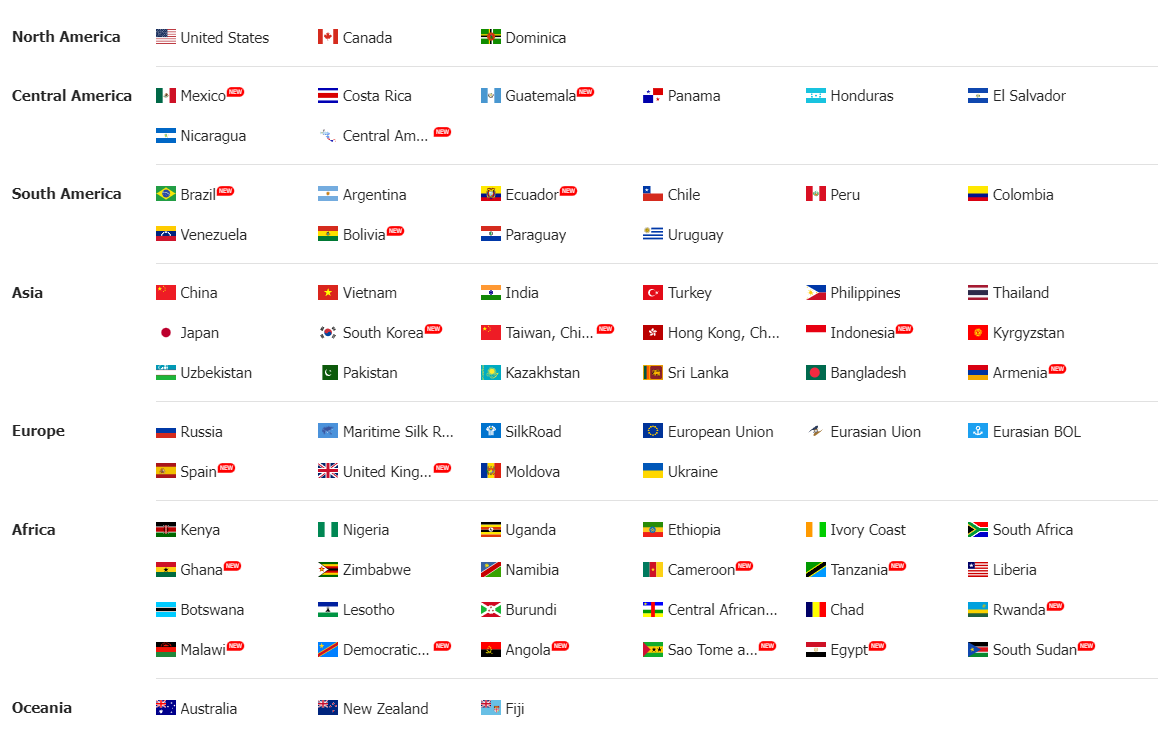 Market Insights
Market Insights
 31-07-2024
31-07-2024
Turkey, a country straddling both Europe and Asia, has established itself as a significant hub for trade due to its strategic location, robust manufacturing sector, and diversified economy. Importing from Turkey can be a lucrative venture, given the country's rich array of products ranging from textiles and electronics to machinery and agricultural goods. This guide provides a comprehensive overview of the steps involved in importing from Turkey and insights into the import business landscape.

1. Understanding Turkey’s Market
Before embarking on an import business, it is essential to understand the Turkish market. Turkey's economy is diverse, with key sectors including automotive, textiles, electronics, machinery, and food products. The country is known for its quality manufacturing capabilities and competitive pricing, making it an attractive source for imports.
2. Market Research and Feasibility Study
Conducting thorough market research is crucial for identifying potential products that align with market demand in your home country. This includes analyzing market trends, consumer preferences, competitive landscape, and pricing strategies. A feasibility study will help assess the viability of your import venture and identify potential challenges and opportunities.
3. Complying with Legal and Regulatory Requirements
Importing from Turkey involves navigating various legal and regulatory requirements. Key steps include:
Import License: Determine if you need an import license in your home country for the specific products you plan to import. Some goods may require special permits or certifications.
Customs Regulations: Familiarize yourself with the customs regulations of both Turkey and your home country. This includes understanding documentation requirements, import duties, tariffs, and any trade agreements that may provide preferential treatment.
Product Standards and Certification: Ensure that the products you import comply with the standards and certification requirements of your home country. This may involve product testing and obtaining necessary certifications.
4. Identifying Reliable Suppliers
Finding reliable suppliers in Turkey is a critical step in the import process. Consider the following approaches:
Trade Fairs and Exhibitions: Attend trade fairs and exhibitions in Turkey to meet potential suppliers, view product samples, and negotiate terms.
Online Marketplaces: Utilize online marketplaces such as Alibaba, TradeKey, and TurkishExporter to find suppliers and compare products.
Business Directories: Use business directories and industry associations to identify reputable suppliers and manufacturers in Turkey.
Chambers of Commerce: Contact the Turkish Chamber of Commerce and Industry for recommendations and information on verified suppliers.
5. Negotiating Terms and Conditions
Once you have identified potential suppliers, negotiate terms and conditions to ensure a mutually beneficial agreement. Key points to discuss include:
Pricing: Negotiate competitive pricing based on quantity, quality, and delivery terms.
Payment Terms: Agree on payment terms, which may include advance payment, letters of credit, or other secure methods.
Delivery Terms: Clarify delivery terms, including shipping methods, incoterms (e.g., FOB, CIF), and expected delivery timelines.
Quality Assurance: Establish quality assurance measures to ensure that the products meet your specifications and standards.
6. Logistics and Supply Chain Management
Efficient logistics and supply chain management are essential for successful import operations. Consider the following:
Shipping and Freight: Choose reliable shipping and freight forwarders with experience in handling imports from Turkey. Ensure timely delivery and proper documentation.
Warehousing: Arrange for appropriate warehousing solutions to store your imported goods. Consider factors such as location, security, and cost.
Inventory Management: Implement robust inventory management systems to track stock levels, manage orders, and minimize delays.
7. Understanding Tariffs and Taxes
Be aware of the tariffs and taxes applicable to the products you are importing. This includes customs duties, value-added tax (VAT), and any other import-related taxes. Understanding these costs is crucial for pricing your products competitively in your home market.
8. Marketing and Selling Imported Products
Develop a comprehensive marketing strategy to promote and sell your imported products. Consider the following:
Market Segmentation: Identify your target market segments and tailor your marketing efforts accordingly.
Digital Marketing: Utilize digital marketing channels such as social media, search engine optimization (SEO), and online advertising to reach your target audience.
Distribution Channels: Choose appropriate distribution channels, including retail, wholesale, and e-commerce platforms, to maximize reach and sales.
9. Building Strong Relationships
Building strong relationships with your Turkish suppliers is essential for long-term success. Key aspects include:
Communication: Maintain open and transparent communication with your suppliers to address any issues promptly.
Visits: Regularly visit your suppliers to strengthen relationships and ensure product quality.
Partnerships: Develop strategic partnerships with suppliers to negotiate better terms and secure a reliable supply chain.
Conclusion
Importing from Turkey offers significant opportunities for businesses seeking to diversify their product offerings and tap into a dynamic market. By conducting thorough market research, complying with regulatory requirements, identifying reliable suppliers, and implementing effective logistics and marketing strategies, importers can successfully navigate the complexities of the Turkish import market. With its strategic location, competitive pricing, and high-quality products, Turkey remains a prime source for global imports.
Tendata iTrader compiles trade data from 218 countries and provides detailed information on over 130 million import-export enterprises worldwide.
With a daily influx of 10 billion trade records, Tendata efficiently delivers contact details for over 700 million top-level executives and decision-makers in the import-export industry through advanced filtering. This includes email addresses, phone numbers, social media profiles, and more. Additionally, we offer synchronized company profiles, product images, and website links, along with 19 types of visual reports. These tools assist foreign trade enterprises in precise market positioning and thorough market analysis, enabling you to quickly find the exact buyers and suppliers you need.
(>> Visit the Official Shanghai Tendata Website for More Details <<)

Category
Leave Message for Demo Request or Questions


 T-info
T-info T-discovery
T-discovery

 My
Tendata
My
Tendata Market Analysis
Market Analysis Customer
Development
Customer
Development Competitor
Monitoring
Competitor
Monitoring Customer Relationship
Customer Relationship




































































































































